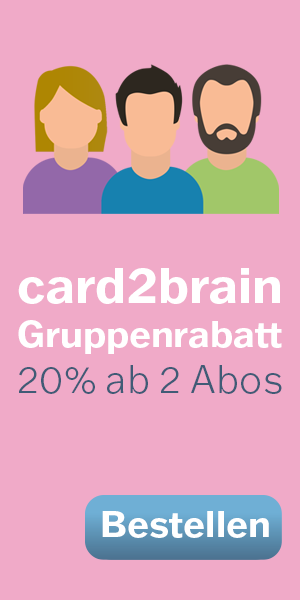Akad
Kartei Details
| Karten | 23 |
|---|---|
| Sprache | Deutsch |
| Kategorie | Englisch |
| Stufe | Mittelschule |
| Erstellt / Aktualisiert | 20.04.2015 / 08.06.2025 |
| Weblink |
https://card2brain.ch/box/englisch_grammatik_grundlagen
|
| Einbinden |
<iframe src="https://card2brain.ch/box/englisch_grammatik_grundlagen/embed" width="780" height="150" scrolling="no" frameborder="0"></iframe>
|
Present simple aufbau
bare infinitive
I like you like he/she/it likes we like they like
Present continuous bildung
auxiliary verb be and the -ing
I am relaxing. You are relaxing. He/She is relaxing
Present Continuous meaning
> action in progress at the present moment - I can't speak to you, i'm washing my hair.
> actions happening around now, -I'm reading tThe Lord of the Rings
Present simple meaning
> habitual actions. - I usally get up at 7.30
>actions and situations that are generally true- Liz plays in the school basketball team.
>Facts wich are always true. - The sun rises in the east
Frequenca adverbs are often used with .........
(always, often usally, sometimes, rarely, never)
present simple
Present simple using
Permanent
habits and routines
facts that are always true
general situations
Present continuous
temporary
in progress now
events happening at the moment
a particular situation
Futur 1 bilding?
will, be going or by using present tenses
Futur - will
infinitiv - the negative -> won't
Special: Shall i open the window?
Will futur Bedeutung
futur beliefs, opinions, hopes and predictions.
- Perhaps it'ill rain tomorrow
Form of be goint to..
be + going + the infinitive
Jean is going to learn to drive
Meaning of be + going + the infinitiv
for plans and intentions. in the near future, or more distant.
I'm going to do lots of work this evening
After I finish University I'm going to travel all over Europe by InterRail
Present continuous (futur) meaning
to talk about things we have arranged to do, in particular social arrangements and appointments.
Are you doing anything on Friday evening? - Not really, why? I'm having a party. would you like to come?
Will or goint to
- Wenn aber ein starker Beweis vorliegt wird going to verwendet.
-> i think it's going to rain this afternoon.
going to oder present continuous?
- Going to kann aber darauf hinweisen, dass die Details noch nicht Final gesetzt sind - es ist immer noch ein Plan. -> Present continous kann darauf hinweisen das die Verabredung konkreter ist, mit Zeit und Ort.
-> Jean is going to have another driving lesson soon.
-> Jean is having her driving lesson this afternoon.
Past simple
... ed -> it happend very quickly
Using past simple
- Für abgeschlossenes -> i knew what the problem was; we went to the Theatre on Friday
Past continuous form
Be + ing-Form ->
- she was playing / we were playing
- Question: was he playing / were you playing
Past continuous Using
- In the middle of a period -> it was raining at three o'clock
- Action went on for the whole period -> We were working all afternoon
- P Continuous wird mit einer Aktion verwendet. Man benutzt es normalerweise nicht für "state Verbs". Für diese benutzt man das past simple (i didn't know where you were. Not I wasn't knowing….)
Past continuous oder past simple
Past Continuous
We use the past continuous for an action that we were in the middle of.-> We were driving home.
Wir benutzen das Past Continuous normallerweise nicht für Zustände (states) -> Not -> the spaceship was seeming…
Past Simple
Wir benutzen das Past Simple für eine "Komplette Aktion" in der Vergangenheit. -> we drove home.
Wir benutzen auch das PS für Zustände (states). -> the spaceship seemed quite big.
Beide Zusammen
Wenn eine kürzere Situation auf eine Längere folgt -> While Laura was sitting in the garden, it suddenly began to rain.
Past Continuous kommt nach as, while, when (As we were driving)
Wir benutzen 2 Past Simple für eine Aktion nach der anderen -> when we saw the spaceship we stopped the car
Extra:
Wir benutzen Past Continuous um ein Hintergrund zu beschreiben -> the sund was shining
Wir benutzen Past Simple um eine Aktion in der Vergangenheit zu beschreiben. -> we arrived at the beach.
Present Perfect Form
Present tense vom Hilfsverb have & past participle (third column in verb tables) -> i have decided to leave tomorrow (regular). - She has written the eimal to Lucy. (irrgeluar)
Present perfect Fragen und Negativ
- Fragen: vertauschen von subject & have. - Have you decided yet?
- Negatives: not & contraction are used - She has not written the email./ She hasn't written the email
Present perfect Gebrauch
- Vergangene Events welche in die Gegenwart verbunden sind. Es gibt aber viele andere Anwendungen.
- Erfahrungen in unserem Leben bis zum jetzigem Zeitpunk: Have you visited any other countries? Yes, i've been to France.
- Ein Event in der Vergangenheit das im Jetzt ein Resultat hat. -> Helen has broken her pencil.
- Eine Situation welche in der Vergangenheit begann und bis heute weitergeht. - I've lived here for ten years












